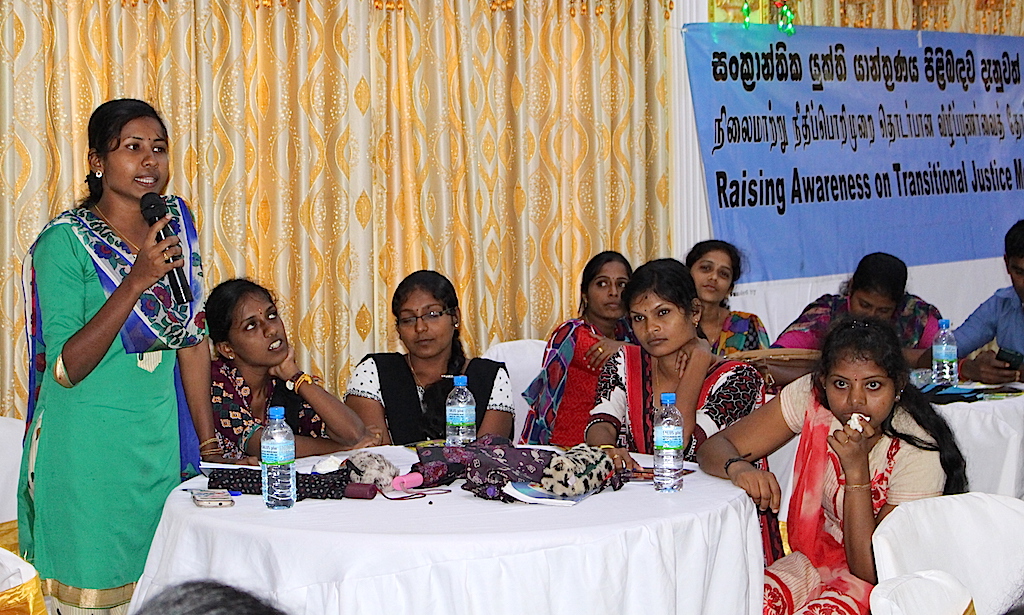
Transitional Justice has four pillars: truth, prosecution, reparations and institutional reform. The students were asked to work in groups to prioritise one of the four pillars. They discussed the question and reported back to the workshop.
Five of the nine student groups chose institutional reform as their first priority as it was the long term solution. They said that if this was achieved, the other three pillars could be accomplished over time. Four of the nine groups chose truth as their priority. They said that without truth it was difficult to find out what the problem was and what the best answer would be. It was necessary for the government to give detailed answers about what had happened during the war, as well as addressing suspicions that Sinhalese colonisation was still happening in the North and East.
The external resource persons were Lal Wijenayake, chairman of the Public Representations Committee on Constitutional Reforms and Raga Alphonsus, a member of the Consultation Task Force on Reconciliation Mechanisms for Mannar District.
The Eluga Thamil (Tamils arise) rally that took place in Jaffna in September gave a picture of resurgent Tamil nationalism. The demands put forward by the organisers included a call for federalism, return of land in the Army’s control, release of political prisoners, an international investigation into war crimes and addressing the issue of missing persons. Some of the academics at the workshop explained that they supported the Eluga Thamil event but not all its slogans.
Although there were critical questions and comments, the discussion was constructive and cooperative. The outcome of the student presentations showed that even the students, who are always more radical than their elders, were practical in their expectations.
